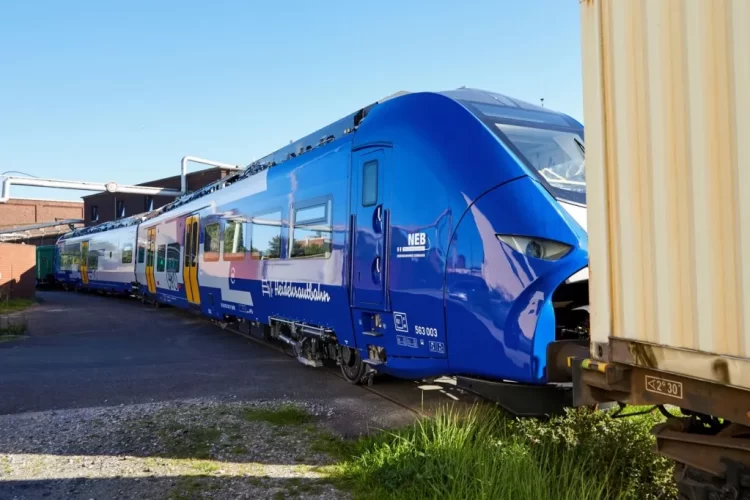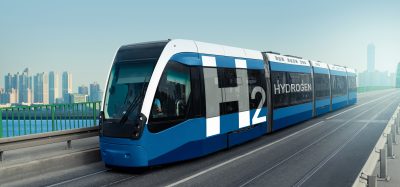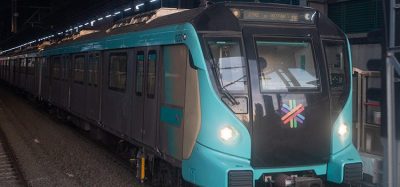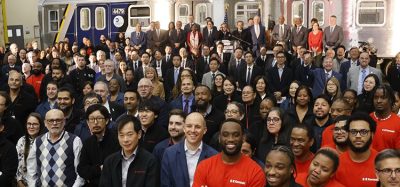First Hydrogen fleet at the Siemens Wildenrath test centre
Posted: 12 December 2023 | Emily Budgen | No comments yet
Siemens Mobility have unveiled their first hydrogen fleet, which is undergoing final testing in the Siemens Wildenrath test centre.


Siemens Mobility has built seven two-car Mireo Plus H trains for Niederbarnimer Eisenbahn (NEB). The last train in the series left the factory in Krefeld on 30th October 2023, and was transferred to the Siemens Mobility test centre in Wegberg-Wildenrath near Mönchengladbach.
Following the basic electrical and mechanical functions tested at the Krefeld plant, further in-depth tests are now being carried out at the Wegberg-Wildenrath Test and Validation Centre (PCW). The extensive type tests being conducted here include electromagnetic compatibility (EMC) tests and brake tests. As these tests, required for official approval of the trains and their operational stability, are conducted, the new trains will be prepared step by step statically and dynamically for operation and ultimately drive their first metres on their own. Final approval by the relevant rail authorities, including the European Union Agency for Railways (ERA) and the German Federal Railway Authority (EBA), will be granted only when all of these tests have been successfully completed.
In addition, NEB’s train drivers will be trained on the new Mireo Plus H at the Siemens Mobility test centre starting in mid-2024 to ensure that the company’s operating personnel is ready for deployment on the Heidekrautbahn as of December 2024.
“Our first Mireo Plus H hydrogen fleet left our plant in Krefeld right on time and will be thoroughly put through its paces at our test centre in Wegberg-Wildenrath,” said Albrecht Neumann, CEO Rolling Stock Siemens Mobility. “The Mireo Plus H is a powerful hydrogen train that combines innovation with sustainability. Thanks to its long range, fast acceleration, and state-of-the-art technologies, it will set new standards for emission-free passenger transportation in the Berlin-Brandenburg metropolitan region.”
“We’re especially pleased that we are on schedule with the hydrogen trains,” said Detlef Bröcker, CEO Niederbarnimer Eisenbahn (NEB). “This gives our employees sufficient time to familiarise themselves with the new trains and their innovative technology. Our customers in the Berlin and Brandenburg region can look forward to boarding new, environmentally friendly, hydrogen-powered trains on the Heidekrautbahn at the end of next year.”
The use of hydrogen-powered trains on the Heidekrautbahn is part of a scientifically supported joint pilot project funded by the federal government and the states of Berlin and Brandenburg. The project is focused on setting up a regional, sustainable hydrogen infrastructure that also includes a hybrid power plant and a hydrogen storage facility. The Heidekrautbahn will be the first rail network in the Berlin-Brandenburg region operating hydrogen-powered trains for public transport. Ultimately, all train operations on the RB27 route will be carried out exclusively with green energy – renewable and regionally produced. The switch from diesel fuel to hydrogen on the Heidekrautbahn will reduce annual CO2 emissions by around three million kilograms and save 1.1 million litres of diesel.
The project “Use of hydrogen fuel cell drives in local transport in the Barnim district” is funded by the Federal Ministry for Digitalisation and Transport as part of the National Innovation Program for Hydrogen and Fuel Cell Technology. The funding guideline is coordinated by NOW GmbH and implemented by lead partner Jülich.
More Like This
Three new battery-only Revolution Very Light Rail vehicles
Hitachi Rail pioneers world first Social Product Declaration
FS Group’s acquisition of Exploris finalised
Related topics
Related organisations
European Union Agency for Railways (ERA), German Federal Railway Authority (EBA), Jülich, Niederbarnimer Eisenbahn (NEB), NOW GmbH, Siemens Mobility






